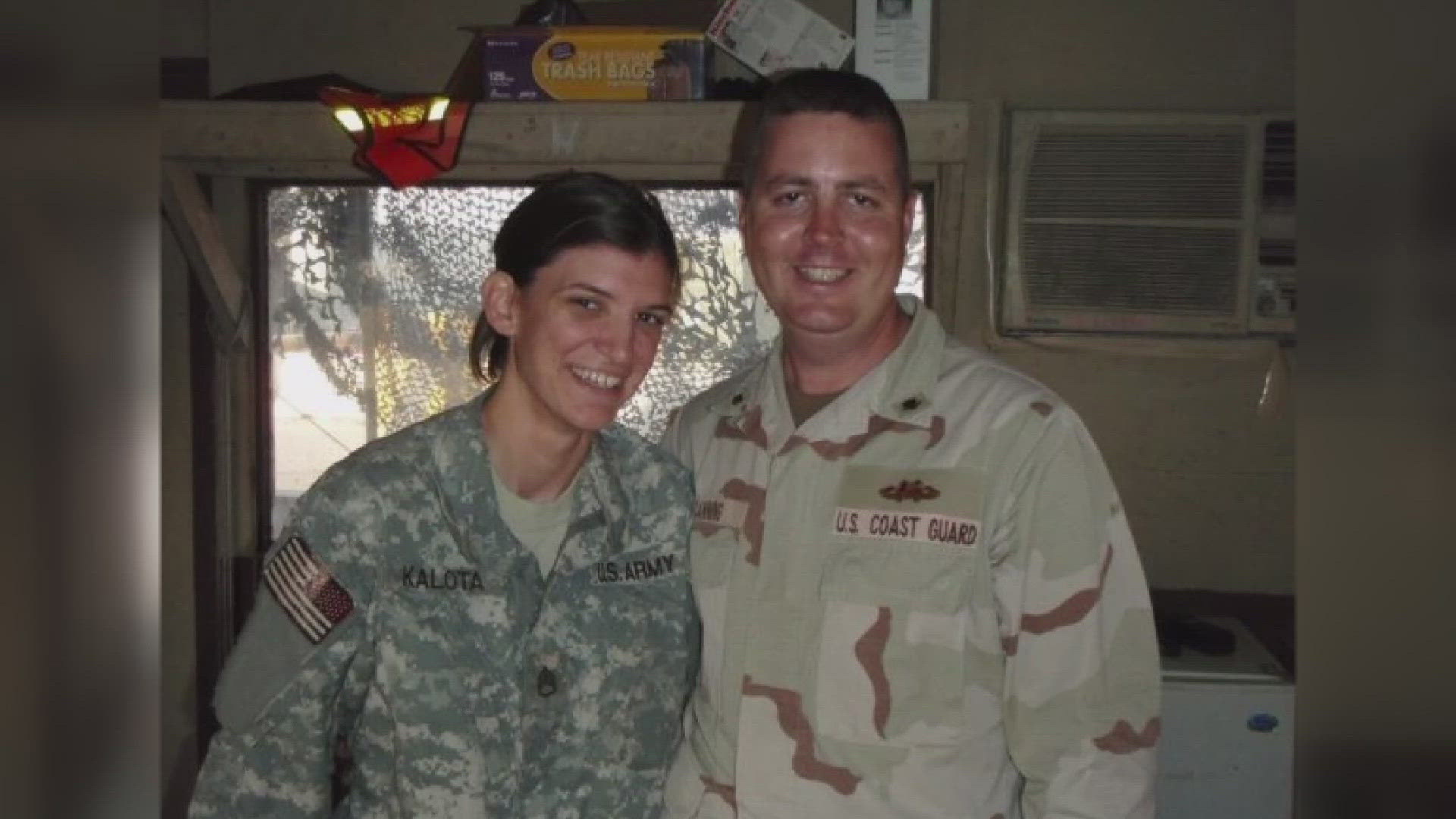JACKSONVILLE, Fla. — She began serving our country immediately after high school and continues to serve others even when her time in the military came to an end.
On this Buddy Check Day, First Coast News introduces you to a veteran who was her biggest advocate when it came to health care; an action that she said, saved her life.
"It felt part of me as soon as I put it on," said Stephanie Kalota. "It feels like something I was always supposed to do with my life."
Kalota spent 15 years in the Army Reserve and rose to the rank of sergeant 1st class. Her deployments brought her to the Middle East.
After leaving the Reserves in 2019, she became a volunteer advocate for women servicemembers, a role that grew after the passage of the Dr. Kate Hendricks Thomas SERVICE Act, which adds new eligibility for veterans to get breast cancer screenings regardless of their age.
More information about the SERVICE Act, including the full text of the bill can be found here.
"When I found that out, and I was around a bunch of women that had breast cancer, I said, 'Okay, I want to get myself checked out,'" Kalota said.
Kalota was 37 years old at the time with a family history of breast cancer. She said initially doctors didn't want her to get screened, but she pushed and brought up her rights under the SERVICE Act.
"There were suspicious masses that they found," said Kalota. "We did tests and biopsies every six months until last April when they found a-typical cells, precancerous cells in one of my masses."
In July, she had surgery to remove all of the masses, something that wouldn't have happened if she didn't advocate for herself like she does for other women and insist on utilizing the SERVICE Act to get screenings before the recommended time.
"Never settle for no, I tell a lot of people to always advocate for themselves," Kalota told First Coast News. "If I didn't know about the SERVICE Act, I would have waited until I was 45 to get checked for breast cancer and by then, those precancerous cells in my breast would be most likely been cancerous by then."
Kalota said she's recovering from surgery and is grateful that she was able to get screened. More information about her journey navigating the SERVICE Act can be found here.
If you have a Story of Service that you would like First Coast News to profile, send an email to storiesofservice@firstcoastnews.com.

